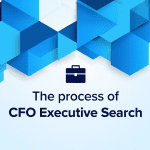Outsourced CFO Business Advisory Services: A Cost-Effective Solution for SMEs

Outsourced CFO Business Advisory Services: A Cost-Effective Solution for SMEs
Introduction
In today’s dynamic business environment, small and medium-sized enterprises (SMEs) face numerous challenges that can impede their growth and sustainability. One of the most critical aspects of running a successful business is effective financial management. However, many SMEs often lack the resources to hire a full-time Chief Financial Officer (CFO). This is where outsourced CFO business advisory services come into play. These services offer a cost-effective solution, providing SMEs with access to high-level financial expertise without the overhead costs associated with a full-time executive. By leveraging outsourced CFO services, SMEs can gain strategic financial insights, improve their financial health, and focus on their core business activities.
Understanding the Role of a CFO
Strategic Planning and Forecasting
A Chief Financial Officer (CFO) plays a pivotal role in the strategic planning and forecasting of a company. They are responsible for developing long-term financial strategies that align with the company’s overall business goals. This involves analyzing market trends, assessing risks, and identifying opportunities for growth. The CFO collaborates with other executives to create comprehensive financial plans that guide the company’s future direction.
Financial Reporting and Compliance
The CFO ensures that the company’s financial statements are accurate, complete, and compliant with regulatory standards. They oversee the preparation of financial reports, including balance sheets, income statements, and cash flow statements. The CFO also ensures that the company adheres to financial regulations and standards, such as Generally Accepted Accounting Principles (GAAP) or International Financial Reporting Standards (IFRS). This role is crucial for maintaining investor confidence and avoiding legal issues.
Budgeting and Cost Management
Effective budgeting and cost management are essential functions of a CFO. They are responsible for creating and managing the company’s budget, ensuring that resources are allocated efficiently. The CFO monitors expenditures and implements cost-saving measures to improve profitability. They also analyze financial data to identify areas where the company can reduce costs without compromising on quality or performance.
Risk Management
Risk management is another critical aspect of a CFO’s role. They identify potential financial risks that could impact the company’s operations and develop strategies to mitigate these risks. This includes managing credit risk, market risk, and operational risk. The CFO also ensures that the company has adequate insurance coverage and contingency plans in place to handle unforeseen events.
Capital Structure and Fundraising
The CFO is responsible for managing the company’s capital structure and fundraising activities. They determine the optimal mix of debt and equity financing to support the company’s growth and operations. The CFO also oversees fundraising efforts, such as issuing bonds or securing loans, and manages relationships with investors and financial institutions. This role is vital for ensuring that the company has the necessary funds to achieve its strategic objectives.
Performance Monitoring and Analysis
Monitoring and analyzing the company’s financial performance is a key responsibility of the CFO. They use various financial metrics and key performance indicators (KPIs) to assess the company’s financial health. The CFO provides regular performance reports to the executive team and board of directors, highlighting areas of concern and recommending corrective actions. This ongoing analysis helps the company stay on track to meet its financial goals.
Leadership and Team Management
The CFO leads the finance department and is responsible for managing and developing the finance team. They ensure that the team has the necessary skills and resources to perform their duties effectively. The CFO also fosters a culture of accountability and continuous improvement within the finance department. Strong leadership and team management skills are essential for maintaining a high-performing finance team.
Technology and Systems Integration
In today’s digital age, the CFO must also be adept at leveraging technology to improve financial processes and systems. They oversee the implementation of financial software and systems that enhance data accuracy, streamline operations, and provide real-time financial insights. The CFO ensures that these systems are integrated with other business functions, such as sales and operations, to provide a holistic view of the company’s financial performance.
Challenges Faced by SMEs in Financial Management
Limited Financial Expertise
Small and medium-sized enterprises (SMEs) often lack the financial expertise required to manage their finances effectively. Many SMEs are founded by individuals with strong technical or operational skills but limited financial acumen. This gap in knowledge can lead to poor financial decision-making, mismanagement of funds, and ultimately, business failure. Without a deep understanding of financial principles, SMEs may struggle with budgeting, forecasting, and financial analysis, which are critical for sustainable growth.
Cash Flow Management
Cash flow is the lifeblood of any business, but managing it can be particularly challenging for SMEs. Inconsistent cash flow can result from delayed payments from clients, seasonal fluctuations in sales, or unexpected expenses. SMEs often operate on thin margins, making it difficult to maintain a healthy cash flow. Poor cash flow management can lead to an inability to meet payroll, pay suppliers, or invest in growth opportunities, putting the business at risk.
Access to Capital
Securing financing is a significant hurdle for many SMEs. Traditional lenders often view SMEs as high-risk investments due to their limited operating history and lack of substantial collateral. This makes it difficult for SMEs to obtain loans or lines of credit at favorable terms. Without adequate access to capital, SMEs may struggle to fund day-to-day operations, invest in new projects, or scale their business. The lack of financial resources can stifle innovation and limit growth potential.
Regulatory Compliance
Navigating the complex landscape of financial regulations is another challenge for SMEs. Compliance with tax laws, labor regulations, and industry-specific standards requires a thorough understanding of legal requirements and meticulous record-keeping. Non-compliance can result in hefty fines, legal issues, and reputational damage. SMEs often lack the resources to hire dedicated compliance officers, making it difficult to stay abreast of regulatory changes and ensure ongoing compliance.
Financial Planning and Forecasting
Effective financial planning and forecasting are crucial for long-term success, but many SMEs struggle in this area. Accurate forecasting requires a deep understanding of market trends, customer behavior, and internal financial data. SMEs often lack the tools and expertise to create reliable financial models, leading to inaccurate projections and poor strategic decisions. Without robust financial planning, SMEs may find it challenging to set realistic goals, allocate resources efficiently, and measure performance against objectives.
Cost Management
Controlling costs is essential for maintaining profitability, but it can be a daunting task for SMEs. Many small businesses operate with limited budgets and must carefully manage expenses to avoid overspending. However, without sophisticated cost management systems, SMEs may struggle to track and control costs effectively. This can lead to inefficiencies, waste, and reduced profitability. SMEs need to balance cost-cutting measures with the need to invest in growth and innovation.
Technological Integration
Adopting and integrating financial technology can provide significant advantages, but it also presents challenges for SMEs. Implementing new financial software or systems requires an initial investment of time and money, as well as ongoing maintenance and training. SMEs may lack the technical expertise to choose the right solutions and integrate them seamlessly into their operations. Resistance to change and limited IT resources can further complicate the adoption of new technologies, hindering the ability to streamline financial processes and improve efficiency.
Risk Management
Identifying and mitigating financial risks is a critical aspect of financial management, but it is often overlooked by SMEs. Risks such as market volatility, credit risk, and operational disruptions can have a significant impact on an SME’s financial health. Many small businesses lack formal risk management strategies and may not have the resources to conduct thorough risk assessments. This leaves them vulnerable to unforeseen events that can disrupt operations and threaten their financial stability.
Talent Retention
Attracting and retaining skilled financial professionals is a common challenge for SMEs. Larger companies often offer more competitive salaries, benefits, and career advancement opportunities, making it difficult for SMEs to compete for top talent. High turnover rates can disrupt financial operations and lead to a loss of institutional knowledge. SMEs need to find creative ways to attract and retain financial talent, such as offering flexible work arrangements, professional development opportunities, and a positive work culture.
What Are Outsourced CFO Business Advisory Services?
Definition and Scope
Outsourced CFO Business Advisory Services refer to the practice of hiring external financial experts to provide strategic financial guidance and management to a business. These services are particularly beneficial for small and medium-sized enterprises (SMEs) that may not have the resources to employ a full-time Chief Financial Officer (CFO). The scope of these services can range from financial planning and analysis to risk management and compliance.
Key Functions
Financial Planning and Analysis
Outsourced CFOs assist in creating detailed financial plans that align with the company’s long-term goals. They analyze financial data to provide insights into the business’s performance, helping to identify areas for improvement and growth opportunities.
Budgeting and Forecasting
These professionals help in developing realistic budgets and financial forecasts. They use historical data and market trends to predict future financial performance, enabling businesses to make informed decisions.
Cash Flow Management
Effective cash flow management is crucial for the sustainability of any business. Outsourced CFOs monitor cash flow to ensure that the company has sufficient liquidity to meet its obligations. They also implement strategies to optimize cash flow, such as improving receivables and managing payables.
Risk Management
Outsourced CFOs identify financial risks and develop strategies to mitigate them. This includes assessing market risks, credit risks, and operational risks. They also ensure that the company complies with relevant financial regulations and standards.
Financial Reporting
Accurate and timely financial reporting is essential for decision-making. Outsourced CFOs prepare financial statements, management reports, and other necessary documentation. They ensure that these reports comply with accounting standards and provide a clear picture of the company’s financial health.
Benefits for SMEs
Cost-Effectiveness
Hiring a full-time CFO can be expensive for SMEs. Outsourced CFO services offer a cost-effective alternative, providing access to high-level financial expertise without the overhead costs associated with a full-time employee.
Flexibility
Outsourced CFOs offer flexible engagement models, allowing businesses to scale services up or down based on their needs. This flexibility is particularly beneficial for SMEs that may experience fluctuating financial requirements.
Expertise and Experience
Outsourced CFOs bring a wealth of experience and specialized knowledge to the table. They often have experience working with various industries and business sizes, providing valuable insights and best practices that can be tailored to the specific needs of an SME.
Focus on Core Business
By outsourcing financial management, business owners and managers can focus on their core competencies and strategic initiatives. This allows them to drive growth and innovation without being bogged down by financial complexities.
Types of Services Offered
Strategic Financial Advisory
This includes long-term financial planning, investment strategy, and capital structure optimization. Outsourced CFOs help businesses align their financial strategies with their overall business objectives.
Operational Financial Management
Day-to-day financial operations such as bookkeeping, payroll management, and accounts payable/receivable management fall under this category. Outsourced CFOs ensure that these operations run smoothly and efficiently.
Transactional Services
Outsourced CFOs assist with specific financial transactions such as mergers and acquisitions, fundraising, and financial restructuring. They provide due diligence, valuation, and negotiation support to ensure successful transactions.
Compliance and Audit Support
Ensuring compliance with financial regulations and standards is critical for any business. Outsourced CFOs provide audit support and help businesses navigate complex regulatory environments, reducing the risk of non-compliance.
Technology Integration
Outsourced CFOs often leverage advanced financial software and tools to enhance their services. They implement and manage financial systems that improve data accuracy, streamline processes, and provide real-time financial insights. This technological integration helps SMEs stay competitive and make data-driven decisions.
Benefits of Outsourced CFO Services for SMEs
Cost Savings
Outsourcing CFO services can be significantly more cost-effective for SMEs compared to hiring a full-time, in-house CFO. The costs associated with a full-time CFO, including salary, benefits, and other overheads, can be prohibitive for smaller businesses. By outsourcing, SMEs can access high-level financial expertise without the financial burden of a full-time executive salary. This allows businesses to allocate resources more efficiently and invest in other critical areas of growth.
Access to Expertise
Outsourced CFOs bring a wealth of experience and specialized knowledge that can be invaluable to SMEs. These professionals often have diverse backgrounds, having worked with various industries and business sizes. This breadth of experience enables them to provide strategic insights and innovative solutions tailored to the unique challenges faced by SMEs. Access to such expertise can help businesses navigate complex financial landscapes, optimize operations, and drive sustainable growth.
Flexibility and Scalability
Outsourced CFO services offer a high degree of flexibility, allowing SMEs to scale their financial management needs up or down based on their current requirements. Whether a business is experiencing rapid growth, facing a downturn, or undergoing a significant transition, outsourced CFOs can adjust their level of involvement accordingly. This flexibility ensures that SMEs receive the right level of support at the right time, without the commitment of a full-time hire.
Strategic Financial Planning
An outsourced CFO can play a crucial role in strategic financial planning, helping SMEs to set realistic financial goals and develop actionable plans to achieve them. They can provide insights into cash flow management, budgeting, forecasting, and financial risk management. By leveraging their expertise, SMEs can make informed decisions that align with their long-term objectives, ensuring financial stability and growth.
Improved Financial Reporting and Compliance
Outsourced CFOs can enhance the quality and accuracy of financial reporting, ensuring that SMEs meet all regulatory and compliance requirements. They can implement robust financial controls and reporting systems that provide clear, timely, and accurate financial information. This not only helps in maintaining compliance but also provides valuable insights into the business’s financial health, enabling better decision-making.
Enhanced Cash Flow Management
Effective cash flow management is critical for the survival and growth of SMEs. Outsourced CFOs can help businesses optimize their cash flow by identifying inefficiencies, managing receivables and payables, and implementing strategies to improve liquidity. With better cash flow management, SMEs can ensure they have the necessary funds to meet their obligations, invest in opportunities, and weather financial challenges.
Focus on Core Business Activities
By outsourcing CFO services, SMEs can free up time and resources to focus on their core business activities. Financial management can be complex and time-consuming, diverting attention from other critical areas such as product development, marketing, and customer service. With an outsourced CFO handling financial matters, business owners and managers can concentrate on driving growth and innovation.
Objective Perspective
An outsourced CFO can provide an objective, unbiased perspective on the business’s financial situation. Unlike internal staff, who may be influenced by internal politics or personal relationships, an outsourced CFO can offer impartial advice based on their professional expertise and experience. This objectivity can be invaluable in identifying issues, evaluating opportunities, and making strategic decisions that are in the best interest of the business.
Access to Advanced Tools and Technologies
Outsourced CFOs often have access to advanced financial tools and technologies that may be cost-prohibitive for SMEs to acquire independently. These tools can enhance financial analysis, reporting, and forecasting capabilities, providing deeper insights and more accurate data. By leveraging these technologies, SMEs can gain a competitive edge and make more informed financial decisions.
Risk Management
Effective risk management is essential for the long-term success of any business. Outsourced CFOs can help SMEs identify, assess, and mitigate financial risks. They can develop and implement risk management strategies that protect the business from potential threats, such as market volatility, economic downturns, and operational disruptions. With a proactive approach to risk management, SMEs can safeguard their financial health and ensure business continuity.
Cost-Effectiveness of Outsourcing CFO Services
Reduced Overhead Costs
Outsourcing CFO services can significantly reduce overhead costs for SMEs. Hiring a full-time CFO involves not only a substantial salary but also benefits, bonuses, and other employment-related expenses. By outsourcing, businesses can access high-level financial expertise without the financial burden of a full-time executive. This allows SMEs to allocate resources more efficiently and invest in other critical areas of the business.
Access to Expertise and Technology
Outsourced CFOs bring a wealth of experience and specialized knowledge that might be otherwise inaccessible to SMEs. These professionals often have a background in various industries and can provide insights that drive growth and efficiency. Moreover, outsourced CFO firms typically use advanced financial software and tools, which can be costly for a small business to purchase and maintain independently. This access to cutting-edge technology ensures that financial operations are streamlined and data-driven decisions are made.
Flexibility and Scalability
Outsourcing CFO services offers flexibility that is particularly beneficial for SMEs. Businesses can scale the level of service up or down based on their current needs and financial situation. This scalability means that during periods of growth or financial complexity, additional support can be easily obtained. Conversely, during slower periods, services can be reduced, ensuring that the business is not overpaying for unnecessary resources.
Focus on Core Business Activities
By outsourcing CFO services, SMEs can focus more on their core business activities. Financial management and strategic planning are time-consuming and require specialized knowledge. Outsourcing these functions allows business owners and managers to concentrate on what they do best, whether it’s product development, sales, or customer service. This focus can lead to increased productivity and business growth.
Risk Management and Compliance
Outsourced CFOs are well-versed in regulatory requirements and risk management strategies. They can help SMEs navigate complex financial regulations and ensure compliance, reducing the risk of costly fines and legal issues. Effective risk management also means that potential financial pitfalls are identified and mitigated early, safeguarding the business’s financial health.
Improved Financial Planning and Analysis
Outsourced CFOs provide detailed financial planning and analysis, which is crucial for making informed business decisions. They offer insights into cash flow management, budgeting, and forecasting, helping SMEs to plan for the future with greater accuracy. This level of financial oversight can lead to better resource allocation and more strategic investments, ultimately enhancing the business’s profitability.
Cost Predictability
Outsourcing CFO services often comes with predictable costs, typically structured as a flat monthly fee or based on the scope of services provided. This predictability allows SMEs to budget more effectively and avoid unexpected expenses associated with hiring and maintaining a full-time CFO. Knowing the exact cost of financial management services helps in better financial planning and control.
Enhanced Investor Confidence
Having a professional CFO, even on an outsourced basis, can enhance investor confidence. Investors and stakeholders are more likely to trust a business that demonstrates strong financial oversight and strategic planning. This trust can lead to increased investment opportunities and better terms for financing, providing the business with the capital needed for growth and expansion.
Case Studies: Success Stories of SMEs Using Outsourced CFO Services
Tech Startup: Streamlining Financial Operations
A tech startup specializing in AI-driven software solutions faced challenges in managing its rapid growth. The founders, while technically adept, lacked the financial expertise to handle complex financial planning and cash flow management. By outsourcing CFO services, the startup was able to:
- Implement robust financial reporting systems
- Develop a comprehensive budget and forecast model
- Secure a significant round of venture capital funding
The outsourced CFO provided strategic insights that helped the startup optimize its burn rate and extend its runway, ultimately leading to a successful product launch and market expansion.
Manufacturing Firm: Cost Reduction and Efficiency Improvement
A mid-sized manufacturing firm struggled with high operational costs and inefficient financial processes. The company decided to bring in an outsourced CFO to address these issues. The CFO’s contributions included:
- Conducting a thorough cost analysis to identify areas of waste
- Implementing cost-saving measures that reduced overhead by 15%
- Streamlining the supply chain and inventory management processes
These changes not only improved the firm’s profitability but also enhanced its competitive edge in the market.
E-commerce Business: Scaling and Financial Strategy
An e-commerce business experiencing rapid growth needed a strategic financial plan to scale effectively. The outsourced CFO played a crucial role in:
- Developing a scalable financial model to support growth
- Creating a detailed cash flow management plan
- Advising on pricing strategies and market expansion
With the CFO’s guidance, the e-commerce business successfully expanded into new markets and increased its revenue by 30% within a year.
Healthcare Provider: Financial Compliance and Risk Management
A healthcare provider faced challenges in maintaining financial compliance and managing risks associated with regulatory changes. The outsourced CFO helped the organization by:
- Ensuring compliance with healthcare regulations and financial reporting standards
- Implementing risk management strategies to mitigate potential financial risks
- Enhancing the accuracy and reliability of financial data
These efforts resulted in improved financial stability and reduced risk exposure, allowing the healthcare provider to focus on delivering quality care.
Retail Chain: Turnaround and Profitability Enhancement
A struggling retail chain was on the brink of bankruptcy due to poor financial management and declining sales. The outsourced CFO was brought in to turn the business around. Key actions included:
- Conducting a financial health assessment to identify critical issues
- Restructuring debt and renegotiating supplier contracts
- Implementing a performance monitoring system to track key financial metrics
The turnaround strategy led to a significant improvement in cash flow and profitability, enabling the retail chain to regain its market position and achieve sustainable growth.
Conclusion
The Strategic Advantage for SMEs
Outsourced CFO business advisory services offer a strategic advantage for SMEs by providing access to high-level financial expertise without the burden of a full-time salary. This allows small and medium-sized enterprises to focus on their core business activities while benefiting from professional financial management. FD Capital provide Outsourced CFO solutions.
Addressing Financial Management Challenges
SMEs often face significant challenges in financial management, including cash flow issues, budgeting, and financial planning. Outsourced CFO services address these challenges by offering tailored solutions that align with the specific needs and goals of the business.
Cost-Effective Financial Expertise
Outsourcing CFO services is a cost-effective solution for SMEs. It eliminates the need for a full-time CFO, reducing overhead costs while still providing the critical financial oversight and strategic planning necessary for growth and sustainability.
Proven Success Through Case Studies
Numerous case studies highlight the success of SMEs that have utilized outsourced CFO services. These businesses have experienced improved financial health, better decision-making, and enhanced growth prospects, demonstrating the tangible benefits of this approach.
A Viable Solution for Sustainable Growth
Outsourced CFO business advisory services represent a viable solution for SMEs seeking sustainable growth. By leveraging external financial expertise, these businesses can navigate financial complexities, optimize their operations, and achieve long-term success.
Related posts:

Adrian Lawrence FCA with over 25 years of experience as a finance leader and a Chartered Accountant, BSc graduate from Queen Mary College, University of London.
I help my clients achieve their growth and success goals by delivering value and results in areas such as Financial Modelling, Finance Raising, M&A, Due Diligence, cash flow management, and reporting. I am passionate about supporting SMEs and entrepreneurs with reliable and professional Chief Financial Officer or Finance Director services.












